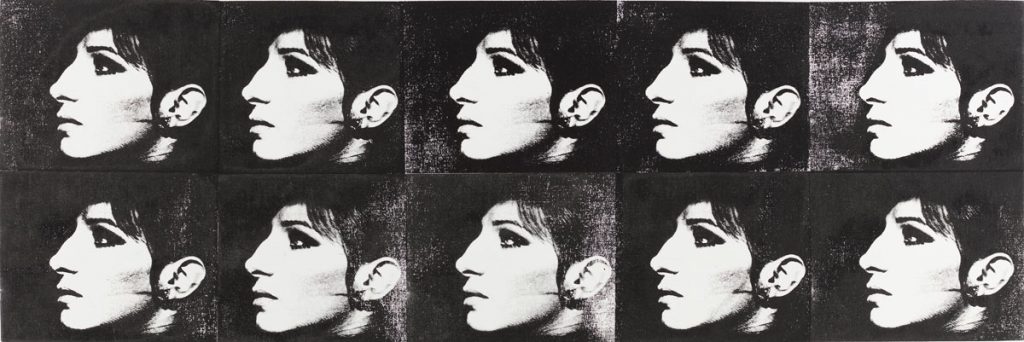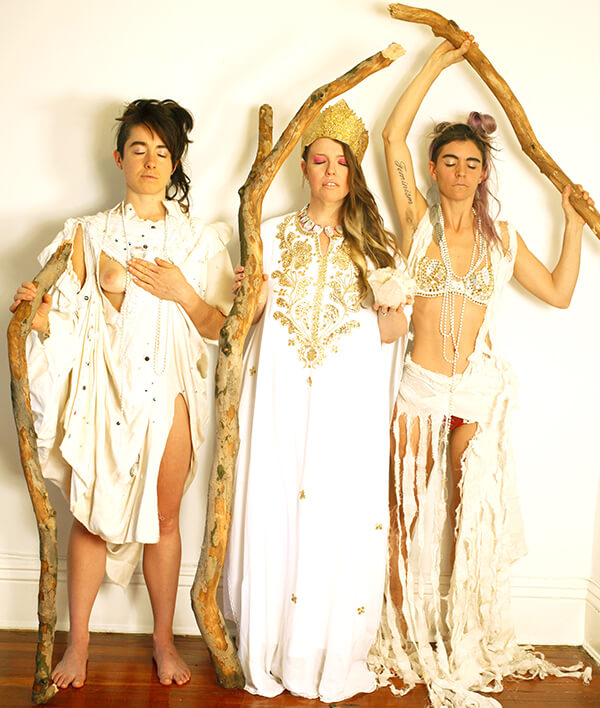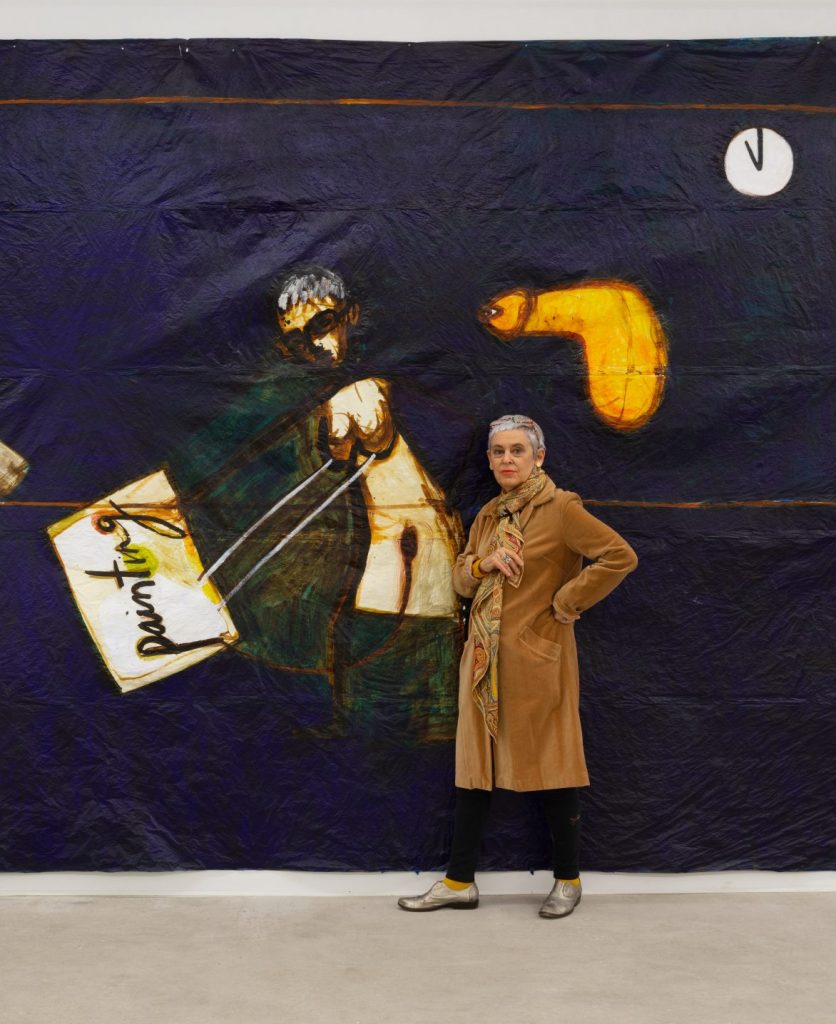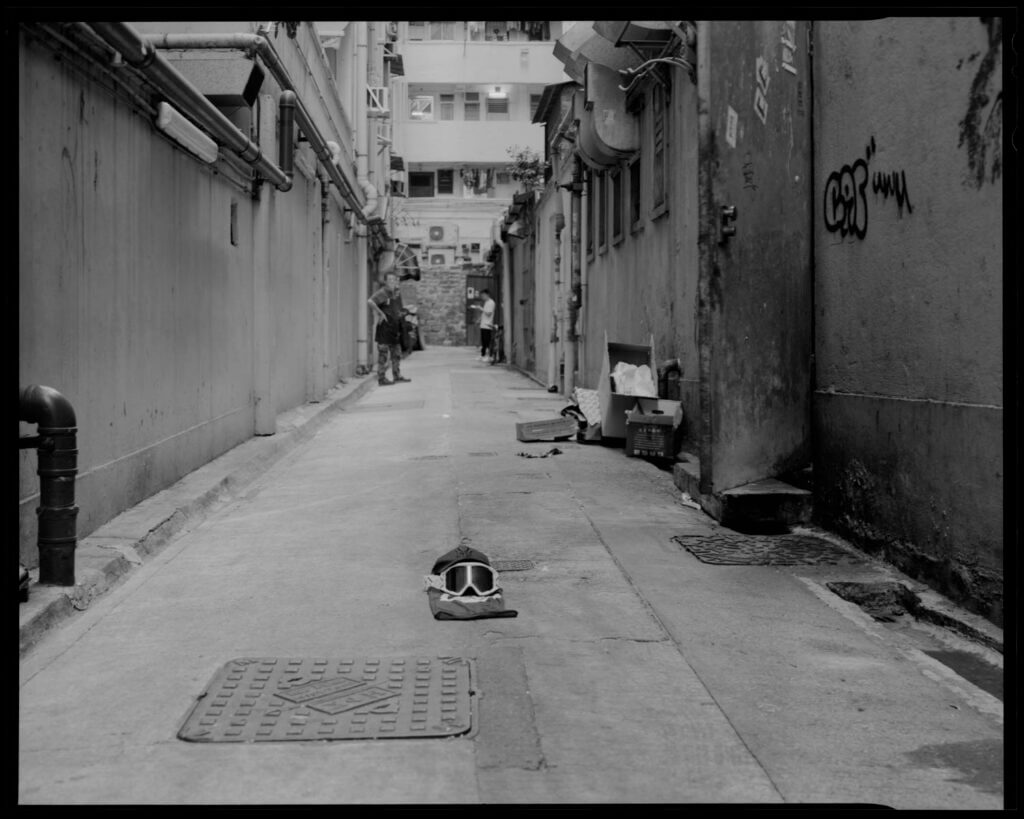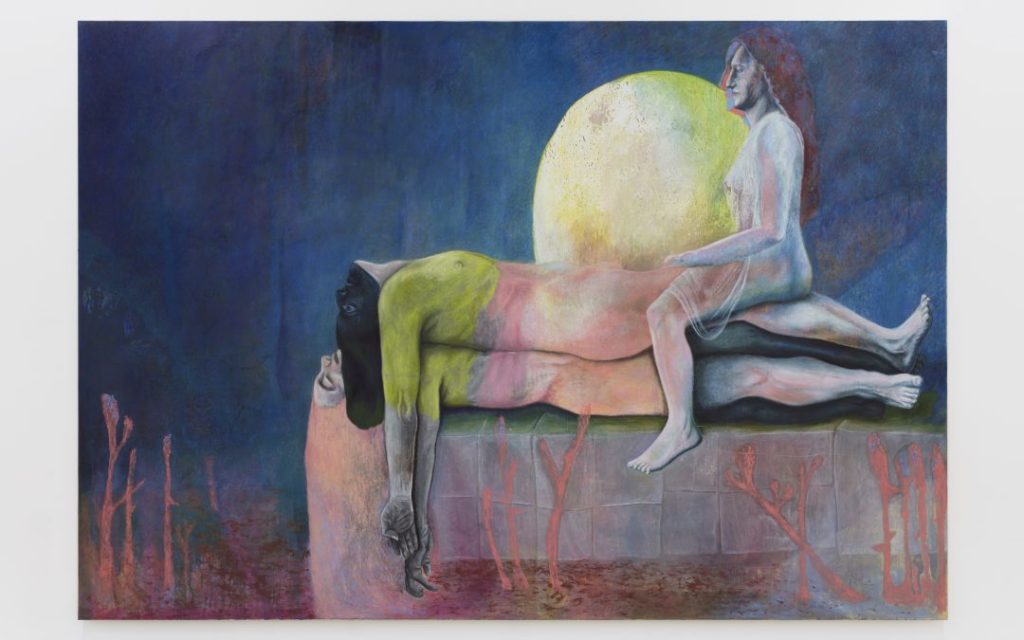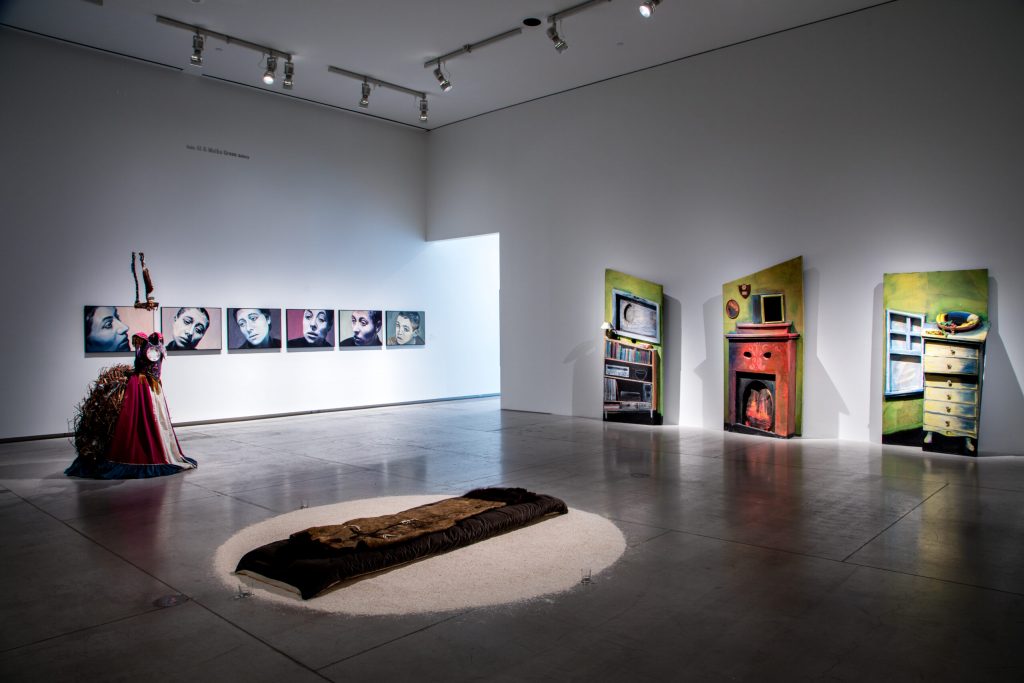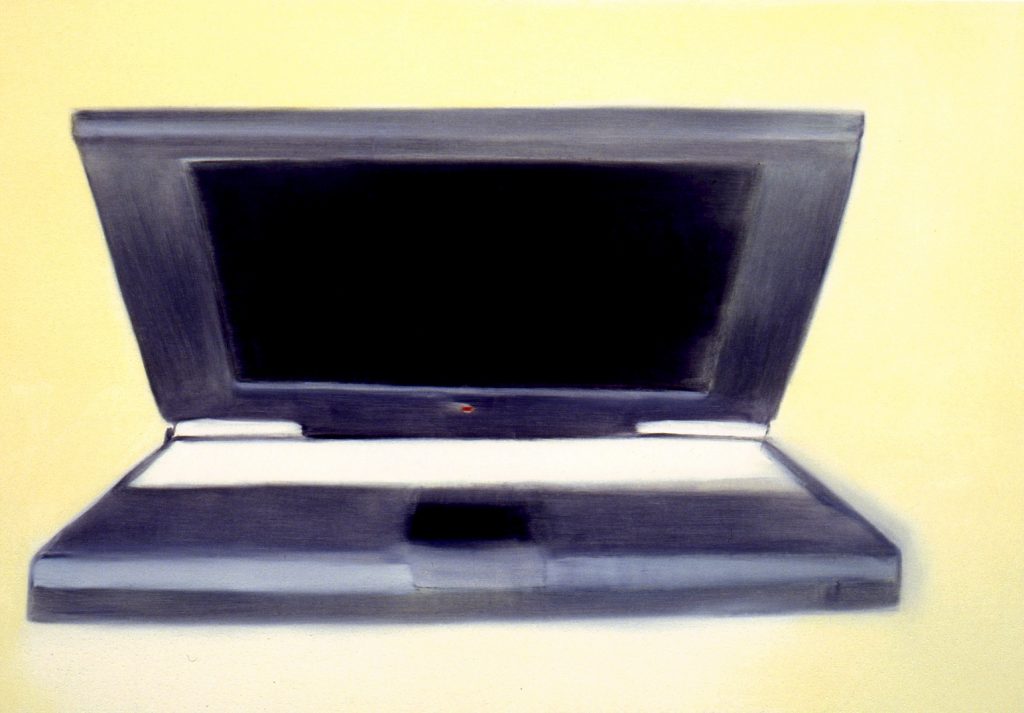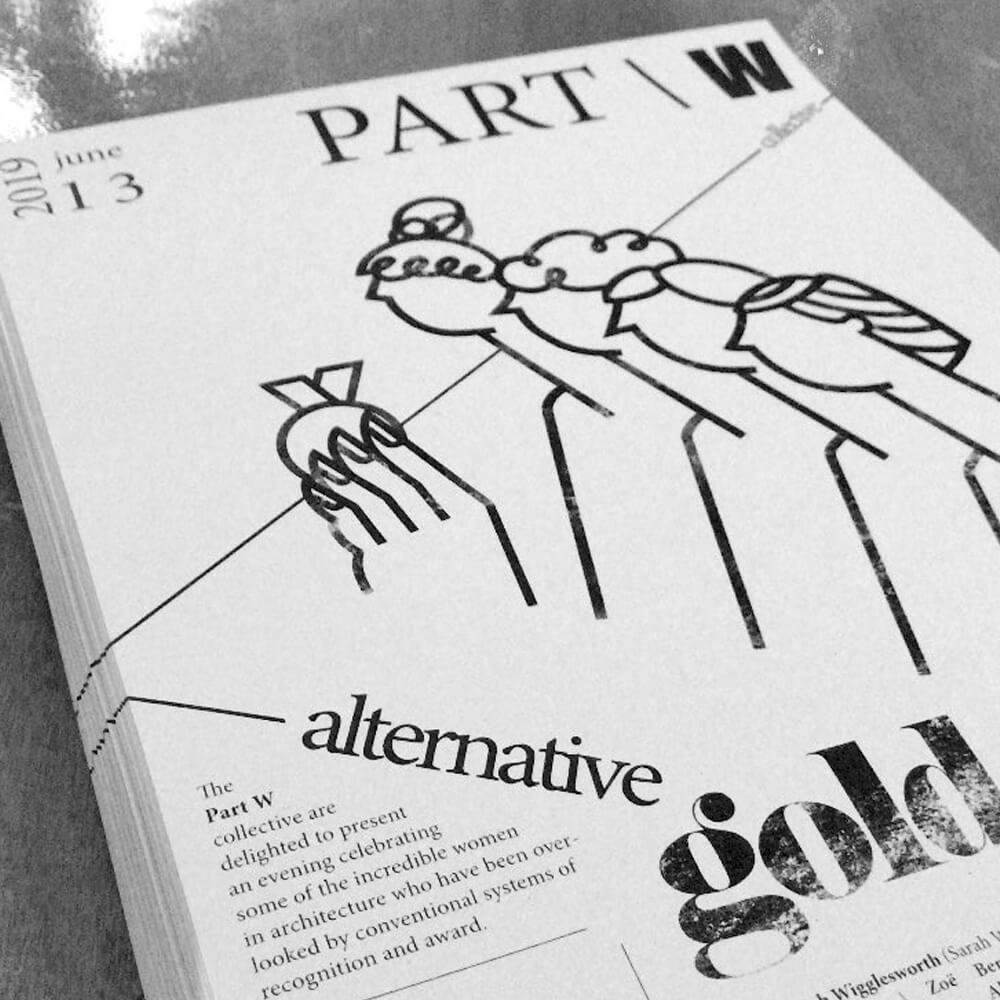Exclusive: Frontrunner x Donald Urquhart for the INDEPENDENT, NEW YORK 2019
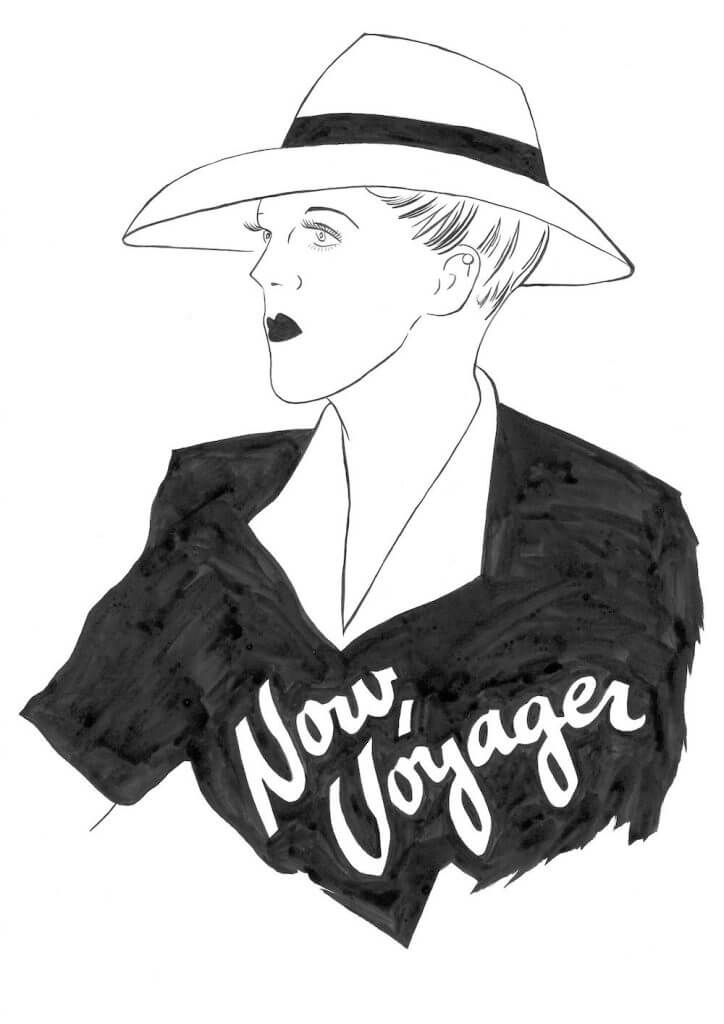
For the Independent Art Fair New York 2019, Frontrunner Magazine and Donald Urquhart presented Rien, an exclusive zine that showcases new work and a Q&A at its center.
Urquhart is represented by pioneering London gallerist Maureen Paley.
Introduction
“I loathe nostalgia,” begins Diana Vreeland’s memoir, ‘D.V.’ (1984), which is a banquet of choice delicacies from her remarkable life, and if she wears rose-tinted spectacles now and again you can bet they’re from Schiaparelli.
Watching The Best of Everything, a Pepsi Years Joan Crawford melodrama, I was surprised to see the shot that inspired Cindy Sherman’s Untitled Film Still #21 (1978). I had no idea. It started me thinking about the portraits of Scarlett Cannon I’ve been working on and how I could reimagine her, not as Sherman, but as Bette Davis – one of her heroes, a fellow Aries she strongly relates to.
I first met Scarlett thirty-five years ago so it’s about time I got round to some drawings. What I’m enjoying is attempting to show her “in character” as the women Bette portrayed. It’s turning into something very Cindy Sherman and crazily it’s all thanks to Joan Crawford. It would never have crossed my mind if I hadn’t been watching that film. It isn’t a great film, it’s gorgeous to look at but it kind of drags.
I wouldn’t think that anyone watching the film would feel nostalgic. It’s a feminist’s nightmare complete with a sleazy office groper and the cruellest men ever. Still, it’s a great snapshot of its day. I’ve often been asked if I could go back and live in any period, which one would I choose? I’m sure you’ve all played that. My stock reply is “Any one at all, as long as I was rich.”
I think that every era is as nightmarish as the last. It’s a constant. It might be nice to snoop around La Belle Epoque but you might suffer poor health, to say the least. It would be really far-fetched to fancy that someone from the future would want to come back and live in our era – as things are today. Of course that’s exactly what people of my age were saying when I was young and having the time of my life. I think maybe my answer to the “Which Era” question should be, “any era as long as I have the best possible times with the best possible people.”
Q&A
You’ve had such hybrid experiences beyond the art world: drag queen, teen model (at one point in Japan, I think?), fashion journalist, and postman, among others. How did these variant lifestyles affect or influence your work as an artist?
I think the term “drag queen” doesn’t accurately convey what I was getting up to, it wasn’t typical generic drag. I was exploring glamour and its opposite, always performing – in a situationalist way at times. It was always about styling; getting whatever it was to look not just right but interesting, from frump to flapper to plague victim, or nailing a frazzled Judy 1957 or a Hunchback of Notre Dame look, down to the shoes. Sometimes I was just plain alarming. My peers were fashion legends, so I liked to flick their switches. You’re dressing to entertain the likes of Leigh Bowery, Dean Bright, Mister Pearl, Pam Hogg, Pete Burns…you can’t turn up in a joke shop wig and a feather boa. Unless that’s all you’re wearing. I have worked at all sorts of things; from making kerbstones to serving Princess Diana at Harvey Nichols. It’s work. It keeps you stoic somehow when you’ve had so many rotten jobs and your work is getting you down. It gives you perspective. I did work as a model after moving to London when I was twenty and worked a lot in Japan. My first job was with David LaChapelle for Interview Magazine, but they didn’t use it and it featured in Blitz instead.
What piece of advice or helpful hint do you wish had been given to you before getting your work out in front of others?
Don’t do anything that you’re not interested in for the sake of putting it on your Curriculum Vitae.
The world of yesteryear Hollywood and Silver Screen glamour is slowly fading into the past. Do your illustrations capture lightning in a bottle or are they now completely veiled over with a kind of sad irony?
I don’t go in for rosy retrospection or anything that mawkish, I think that viewing “nostalgia” reflectivity, or sending the past through a prism can be an act of refreshment. My favourite prism is Ken Russell directing The Boy Friend which was the 1970s doing a play from the 1950s pastiching the 1920s but set roughly in the 1930s. There’s no good idealising the past, but celebrating the best of it is valid, and neither sad nor ironic.
If a young artist is told that they’re too young, too inexperienced, no clout, no great future, how should they reply?
Well that’s terrible. Who are these people telling them this? Honestly. Just take no notice.
Could you describe your gallerist, Maureen Paley, in six words or less?
I don’t think that I could. I would have to sing a song.
When you started to develop your work, which artists or illustrators were you looking towards? Who are you looking at now?
Going way back, I was obsessed with Goya, Ensor, Dix, Rops – and going further back it was Mad Magazine and Stan Lee. Oh, and Roger Dean andThe Broons. Everybody. Antonio Lopez and Richard Bernstein are still thrilling, I don’t know who I’m looking at these days – I spend a lot of time looking at fonts and graphics on film posters drawn by artists I will never know the names of.
Keep looking.

So much of what we see in the messy web of visual and digital culture is this exhausting push to appear happy and conflict-free. Would you say your work, at least in the moment, is counter-culture?
Counter culture? I wouldn’t say that, although it can be a bit un- der-the-counter. I’ve never been one for wanting to appear happy but for those who feel compelled to I have a little advice: smile with your eyes, not your teeth. There is nothing worse than seeing someone pushing their mouth into a smile shape when their eyes aren’t joining in. I might be counter-culture in a rococo way now, having lived in Paris. That complex way where no means yes and yes means no. I’m a little anti-culture too, when it comes to things I don’t like. Ha!
For young LGBTQIA artists and those still struggling to cope with the constant pressures of making work while tirelessly maintaining social media persona, what would you like them to know?
Are a lot of people living like this? That’s really awful. Let them know that they are wasting their lives, spending energy on nothingness. This is the Age of Nothing and they are throwaway ephemeral zeroes competing with other nonentities. No, I don’t mean that at all. (Wink emoji). I can’t imagine having to live in such an abstract way. It must be really tough. I don’t have a smart-phone or even the internet or a camera on my phone. It’s ridiculous that artists have to distract themselves from their work to become almost third person personae. What a world. Utterly horrid. Watch out for passive-oppressive homophobia – it’s rife in the art world. Institutions can’t hoist up swastikas, so they are much more sneaky in how their fascism operates. Be alert to tokenism too, it’s often merely a smoke screen or a skewed bid for funding.
What are some materials in your studio or workspace that you could never go without?
This is going to sound a bit primitive, but I can’t make work without a 2B pencil, putty rubber, 000 size sable brush and black ink. People say “use aSharpie”, but that tells me that they don’t get it, they can’t see what I do. My work would be impossible to make using a pen.
I am a slave to the imperfection of the brush and the Divine Dissatisfaction that it creates. Haha!
Will you please give your lovely little Rottweiler puppy, Glen, a hug from us?
Aha. But “mais non!” Glen is not a Rottweiler but a Lakeland Terrier crossed with a Chihuahua. Most people think he is a tiny German Shepherd. He has similar markings. He does take up a lot of my time but not as much as smartphone addiction would. Also I get out and about more – Dumfries has so many beautiful places to take dogs. Of course I will give him a hug! He is sleeping on my foot right now.


